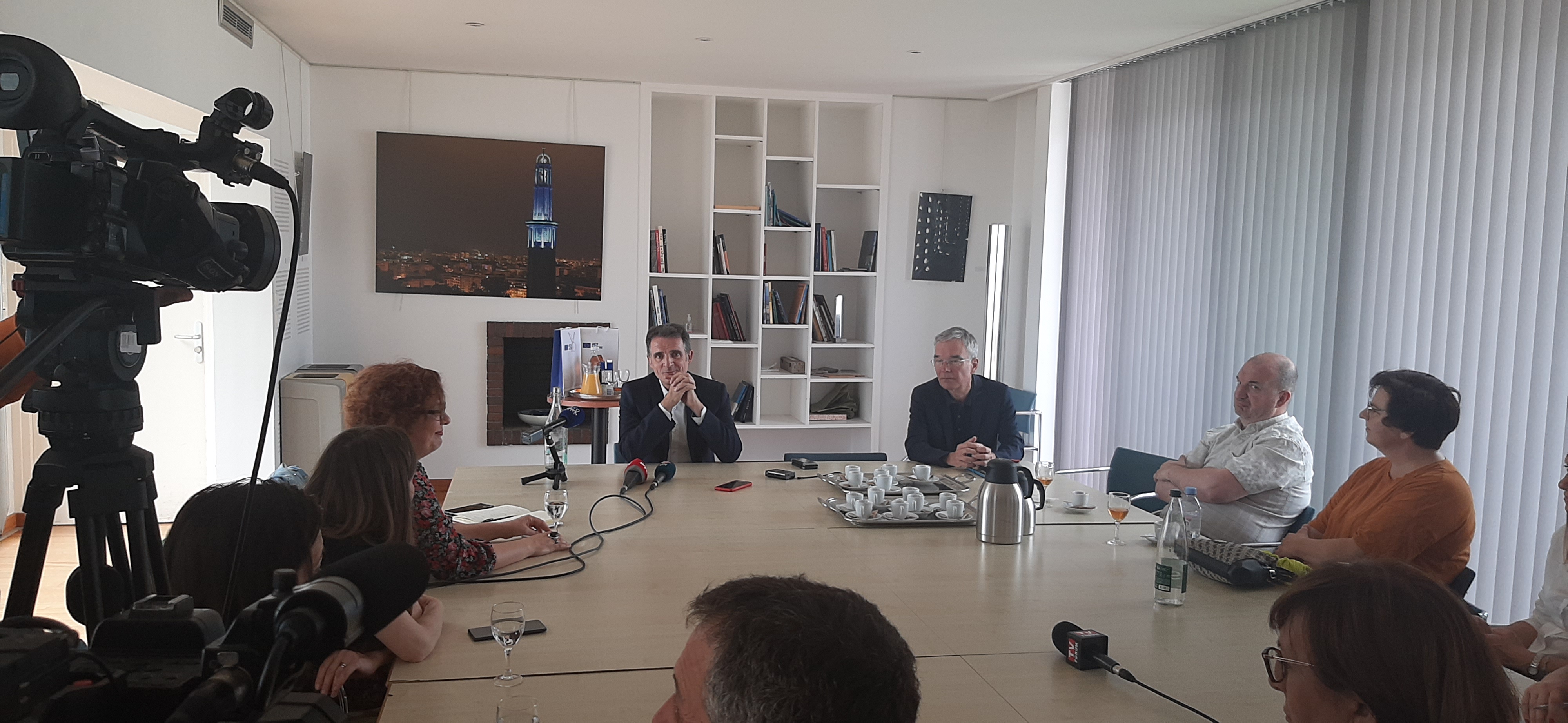The Pulse of Europe in France: how Grenoble became the European Green Capital
Did you know that Grenoble, in addition to
being this year's European Green Capital, is also the French capital of
bicycles? In the city at the foot of the Alps, there are more bicycles than in
Paris, journalists - participants of the media visit to Grenoble learned during
the meeting with the City Mayor. Mayor Eric Piolle said that there are far more
bicycles in Grenoble compared to Paris, when the number of inhabitants is taken
into account, and that the city has as many as 475 kilometers of bicycle lines.
That was just one detail that describes why the city was declared the green capital, and which the group of 15 participants from Serbia could see as soon as they arrived. Journalists from Forum television from Prijepolje, RTS, RTV and Euronews Serbia, Beta News Agency, Nova daily, Nedeljnik and Energetski portal magazines, as well as Radio Novi Sad participated in the media trip to Grenoble from 30 May to 4 June 2022. They were joined by a representative of the National Convention on the EU and the non-governmental organization Ambassadors of Sustainable Development and the Environment. The trip was organised by the Pulse of Europe – Media Trips to EU project.
In meetings with the Mayor who comes from the Green Party, representatives of the organisation Invest in Grenoble-Alpes, local initiatives to promote the use of solar energy, managers who run eco-hotels, they got an insight into how that French city became a leader in the green transition.
Grenoble applied for the Green Capital by being the first local self-government in France to adopt a climate plan in 2005, and received the award thanks to the good application of 12 indicators, among which are mobility, waste management, energy efficiency, air and water quality, writes Euractiv Serbia in its feature.
Grenoble's recipe for obtaining the title of Green Capital was also the use of natural materials in construction, giving priority to free greenery and alternative transportation, which all the participants of the media trip saw for themselves: cars are definitely second-row traffic participants, cyclists have priority. Green spaces are everywhere imaginable, and even the smallest public space has a well-kept planter. The city authorities have sold official cars and employees come to work by bicycle. (See the Euronews Serbia report).

The city plans to phase out fossil fuels in public institutions by the end of this year, decarbonize the entire Grenoble by 2033, and become climate neutral by 2050. Even in the very center of the city, solar panels are everywhere. Plans for the future include the use of wood for the construction of buildings, the introduction of carpooling on the highway to Lyon, an increase in the number of solar panels and better insulation of buildings. In a conversation with the owner of the eco-hotel, the journalists learned that children take the first steps towards developing a strong environmental awareness already in kindergarten.
Eco-districts, which the city has been developing since the beginning of the 2000's, are the places where the green transformation is best seen: in the Cambridge district, journalists had the opportunity to see autonomous - energy independent - buildings where electricity is obtained from solar panels, water from rainwater, and the tenants live in specially designed apartments equipped with sustainable materials. When they overuse their water, the shower handle first turns blue, then red. And they compost, so the green circle is closed. Two ABC (Autonomous Buildings for Citizens) have 42 apartments, a quarter of which is intended for social housing. The tenants interviewed by the journalists have only words of praise for the unusual project that started two years ago: read more in the Nova S daily report.
Solar panels are on almost all buildings, even in the very center of the city. Thirty-five parks adorn the city, and the Bastille fortress above the city can be reached by the famous cable car with oval cabins, but also through the forest, on perfectly arranged paths. Journalists of TV Forum Prijepolje summarised their impressions in a series of articles, we single out the feature entitled "Tomorrow is today". Quite in line with Grenoble's motto during the title campaign: "The time to act is now".


